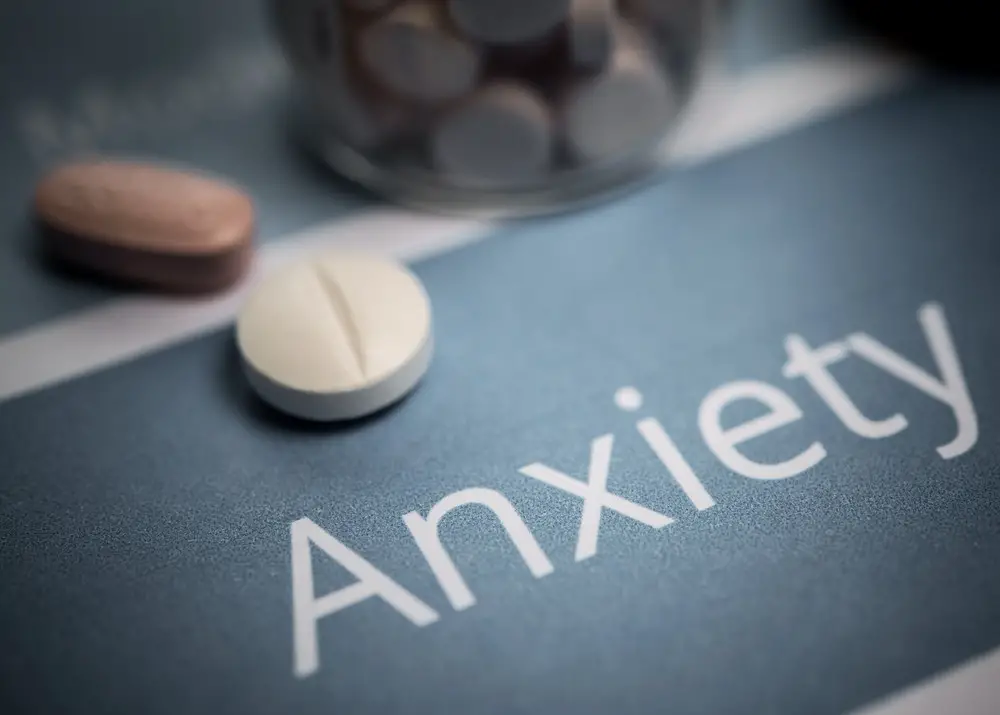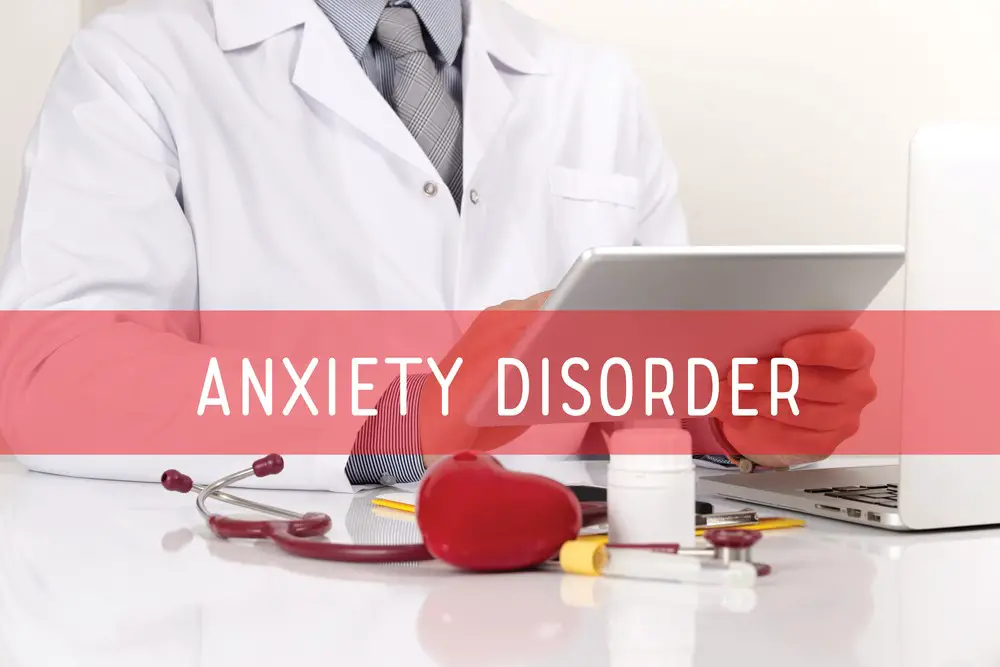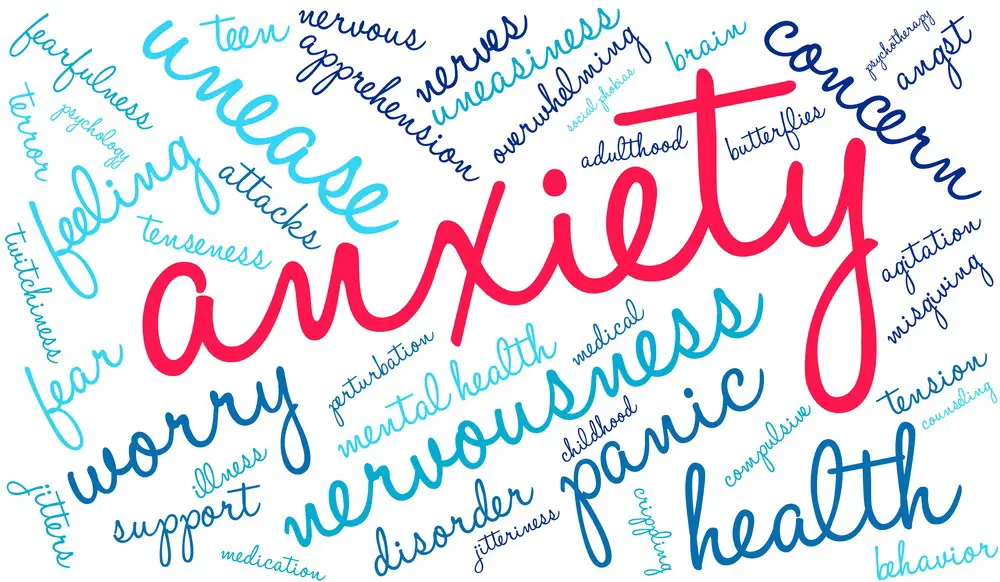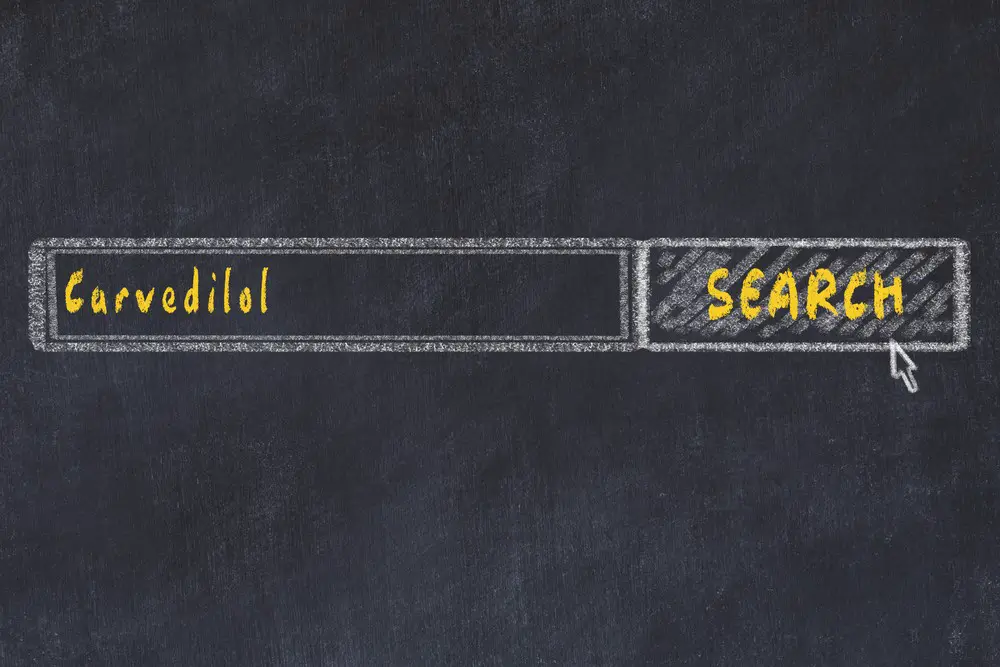As a BetterHelp affiliate, we receive compensation from BetterHelp if you purchase products or services through the links provided
Carvedilol, a beta-blocker, has been widely prescribed to treat various heart conditions, such as hypertension and heart failure. However, its potential benefits in managing anxiety symptoms are gaining attention in medical circles. As anxiety disorders are becoming increasingly prevalent in our fast-paced society, it is crucial to explore different treatment options to improve patient’s quality of life.
While traditionally used for cardiovascular issues, carvedilol’s mechanism of action suggests it may also help reduce anxiety. This medication can reduce anxiety symptoms by blocking the effects of stress hormones, such as adrenaline, on the body’s heart and blood vessels. Understanding carvedilol’s potential uses and side effects for anxiety treatment is essential for patients and healthcare providers, as it may offer a viable alternative to conventional anti-anxiety medications.
Key Takeaways
- Carvedilol may provide anxiety relief due to its beta-blocking properties
- Understanding potential side effects and precautions is important for safe use
- Comparing brand vs. generic options, as well as potential impacts on lifestyle, can help make informed treatment decisions

Understanding Carvedilol
What is Carvedilol
Carvedilol is a versatile medicine for heart-related ailments, including high blood pressure and heart failure. This powerful drug has received FDA approval, making it a trustworthy option for many patients. Carvedilol is sometimes used “off-label” to treat conditions like anxiety.
Carvedilol as a Beta-Blocker
Carvedilol belongs to the family of medications known as beta-blockers. These blockers work by inhibiting the effects of certain hormones, such as adrenaline, on the heart. Consequently, the heart slows down and demands less oxygen from the body. As a result, heart-related issues can be effectively managed.
It may seem surprising, but Carvedilol can play a role in reducing anxiety. You might wonder, “How could a heart drug help with anxiety?” Well, anxiety often manifests as physical symptoms—for instance, a pounding heartbeat or a tight chest—that resemble those of heart ailments. Thankfully, Carvedilol’s calming effect on the heart can alleviate some of these symptoms.
However, don’t expect miracles from Carvedilol when it comes to anxiety. While it can undoubtedly help with some physical manifestations, it’s essential to remember that it was primarily designed for heart conditions.
Uses of Carvedilol
Heart Conditions
Carvedilol is a versatile medication often prescribed for various heart conditions. For instance, it treats heart failure by supporting the heart muscle and boosting its ability to pump blood throughout the body. Additionally, it’s frequently utilized in managing angina and alleviating pain and discomfort associated with this condition.
High Blood Pressure
When it comes to high blood pressure or hypertension, carvedilol proves to be a reliable option. By relaxing blood vessels and slowing down heart rate, this medication effectively reduces blood pressure, thus mitigating the risks of severe health complications such as stroke or heart attack.
Anxiety Treatment
Interestingly, carvedilol is also finding its way into anxiety treatment. While it’s not specifically approved for this purpose, some healthcare professionals have noticed its potential benefits for those struggling with anxiety. Since increased heart rate and blood pressure are common symptoms of anxiety, it’s no surprise that a medication capable of regulating both these aspects would be considered helpful. Consequently, carvedilol is occasionally prescribed as an off-label remedy to manage anxiety-induced physical symptoms, providing users with ease during stressful times.

Potential Side Effects
Though effective in managing anxiety, Carvedilol has the potential for side effects in some patients. In this section, we’ll explore the potential side effects that one may experience, categorized into common and severe side effects.
Common Side Effects
Carvedilol users may encounter common side effects that usually subside without significant intervention. These include:
- Dizziness: Feeling a bit woozy or lightheaded when taking carvedilol is normal. This sensation usually diminishes as the body adjusts to the medication.
- Headache: Many users experience headaches when starting carvedilol, but they often disappear as the treatment continues.
- Tiredness: Fatigue is a frequent side effect but tends to improve over time.
- Dry mouth and nausea: These symptoms might be bothersome initially but are likely to decrease as the body gets accustomed to the medicine.
Severe Side Effects
In rare instances, carvedilol can trigger more severe symptoms. It’s vital to consult a healthcare professional if any of the following side effects occur:
- Chest pain and shortness of breath: These symptoms might indicate an irregular heartbeat or other cardiovascular issues.
- Severe dizziness and fainting: If you experience intense lightheadedness, loss of consciousness, or fainting, notify your healthcare provider immediately. This could be a sign of dangerously low blood pressure.
- Swelling: Noticeable swelling in your hands, ankles, or feet warrant medical attention as it could result from fluid retention.
- Unexplained weight gain: Rapid, unexplained weight gain could stem from carvedilol’s impact on the renal system.
- Increased thirst and urination: These signs might point to high blood sugar levels and should be addressed by a healthcare professional.
- Seizures, tingling, numbness, or weakness: Such rare neurological symptoms warrant immediate medical attention.
Remember that side effects vary from person to person, so staying in close contact with your healthcare provider and reporting any unusual symptoms is essential. Overall, staying vigilant and communicating with your healthcare professional will help ensure a safe and effective treatment with carvedilol.

Taking the Medication
Dosage Information
Oh, it’s essential to get the dosage just right! Doctors typically start patients with a low dose of carvedilol for anxiety, such as 3.125 mg tablets, taken twice daily. But hold on – your physician might adjust this amount over time based on how you’re doing. Remember, though, that the maximum dose is 50 mg daily.
It’s important to swallow the tablet whole; don’t crush or chew it. That way, it releases gradually into your bloodstream. And here’s a helpful tip: Taking the medication with a small meal or snack can help you avoid an upset stomach.
Medication Interactions
This is crucial to know: Carvedilol can interact with other medications, which might affect how well they work or increase side effects. Some examples include but are not limited to, other blood pressure medications, heart medications, and asthma medications. So, it’s a good idea to inform your healthcare provider of all your current drugs, including over-the-counter products and dietary supplements.
Missed Dose
If it’s just a few hours late, take the missed dose as soon as you remember. But on the other hand, if it’s almost time for your next dose, skip the one you missed. Simple, right? However, it’s important not to double up, as that could lead to adverse reactions or complications. And if push comes to shove, always seek immediate medical attention if you’re experiencing severe side effects.
Taking carvedilol for anxiety requires attention to dosage, medication interactions, and handling missed doses. Following these guidelines makes you take a meaningful step toward managing your anxiety safely and effectively.
Safety and Precautions
When considering using carvedilol for anxiety, knowing the safety precautions and potential risks is crucial. This medication is generally safe when used as directed, but it’s essential to be vigilant for any possible side effects or interactions—after all, everyone’s body responds differently to medications.
Warnings
Carvedilol, like any medication, comes with its fair share of warnings. Before you start using carvedilol, you should inform your doctor if you have any of the following conditions:
- Liver disease: This medication is processed by the liver, so those with liver disease may need adjusted dosages or a different treatment altogether.
- Pheochromocytoma: Carvedilol should not be used by patients with this rare tumor as it might exacerbate symptoms.
- Bronchitis or emphysema: Those with respiratory issues should proceed cautiously, as carvedilol may worsen these conditions.
- Kidney disease: It’s important to inform your doctor if you have kidney disease, as this medication may require close monitoring or dosage adjustments.
Additionally, you should let your healthcare provider know if you plan on having surgery soon, as they may need to adjust your carvedilol dose before and after the procedure.
Allergic Reactions
Allergic reactions to carvedilol are rare, but they can still occur. Monitor for symptoms such as itching, rash, trouble breathing, facial, lips, or throat swelling. If you encounter these signs, seek immediate medical attention—it’s better to be safe than sorry!
Furthermore, it’s wise to avoid consuming alcohol while using carvedilol, as it may lead to increased dizziness or lightheadedness. Generally, discussing potential interactions or concerns with your doctor before starting the medication is best.
In conclusion, follow your doctor’s guidance and stay informed about the safety precautions associated with carvedilol for anxiety. Considering these factors, you’ll be better equipped to manage your condition while minimizing side effects and complications.

Brand vs Generic
Carvedilol vs Coreg
Carvedilol is a widely prescribed medication valued for alleviating anxiety symptoms. It’s available as a brand name, Coreg, and in its generic form. Many patients often ponder which version to choose, as they can differ significantly in terms of price, efficacy, and side effects.
In essence, both Coreg and the generic carvedilol contain the same active ingredient. They come in tablet and capsule forms, with extended-release capsules also available for dosage convenience. That being said, although they may appear similar regarding their ingredient list, there can be subtle differences worth noting.
A key aspect to consider is the cost factor. Generic drugs, being less pricy than their brand-name counterparts, certainly appeal to the budget-conscious.
So, which one should you choose? It ultimately depends on factors such as individual preferences, medical history, and the advice of your healthcare provider. It’s essential to be open about your concerns and discuss the options to find the most suitable form for your needs.
In conclusion, while Coreg and generic carvedilol may have unique merits, the choice is subjective. Don’t hesitate to consult your doctor to determine the ideal course of action tailored to your condition.
Impact on Lifestyle
Exercise and Diet
Carvedilol for anxiety can impact one’s lifestyle in various ways. Maintaining a healthy balance of exercise and diet is essential while taking this medication. On the one hand, exercise helps release endorphins, which can counteract anxiety and improve mood. However, it’s important not to push too hard, as carvedilol can cause fatigue and cold hands and feet. Listening to one’s body and finding a comfortable exercise intensity is crucial.
Maintaining a well-rounded diet is paramount. Consuming nutritious meals that are rich in fruits, vegetables, lean proteins, and whole grains can provide a solid foundation for mental health. Moreover, staying hydrated is incredibly important; dehydration can exacerbate dry eyes, a common side effect of carvedilol. So, be sure to drink plenty of water throughout the day.
Managing Side Effects
Carvedilol, like any medication, can cause some side effects. While some individuals might experience only mild symptoms, others may struggle with more severe effects. Here are a few tips for managing common side effects of carvedilol:
- Dry eyes: Use over-the-counter lubricating eye drops or consult an eye care professional for prescription options. Also, avoid direct exposure to air conditioning or heaters, as they can worsen dry eye symptoms.
- Fatigue: Ensuring adequate sleep and managing stress can minimize feelings of fatigue. Incorporating relaxation techniques, such as deep breathing or meditation, can also help.
- Fluid retention: Monitor your salt intake, as excess sodium can contribute to fluid retention. Wearing compression stockings may also alleviate swelling in the legs or feet.
- Cold hands and feet: Keep extremities warm with warm socks or gloves. Avoid prolonged exposure to cold environments.
Awareness of these potential side effects and taking proactive steps to manage them can help individuals maintain their overall well-being while using carvedilol for anxiety treatment. Stay in communication with your healthcare provider to address any concerns or adjustments needed for a more seamless medication experience.

Understanding Your Condition
Carvedilol is a versatile medication that is vital in treating various heart-related conditions. It’s essential to grasp how it impacts your body, especially if you’re dealing with anxiety, high blood pressure, or heart failure.
The primary function of carvedilol is to regulate your heart rate and blood pressure. It does this by acting on your blood vessels, causing them to dilate and improving blood flow. This, in turn, reduces strain on the heart, preventing complications like heart attacks.
Anxiety can contribute to high blood pressure, also known as hypertension. Excess stress and worry may cause your heart to work harder, increasing your blood pressure. As a treatment option, carvedilol can help manage your anxiety while improving your heart’s health.
Heart failure and diabetes are other conditions for which carvedilol may be prescribed. In cases of heart failure, weakened or damaged heart muscles struggle to circulate blood efficiently. Carvedilol strengthens the heart and promotes better blood flow for patients with these conditions. For those with diabetes, carvedilol can help manage hypertension, a common complication that can exacerbate the effects of the disease.
However, it’s important to note that carvedilol may not be suitable for everyone. Some patients may experience side effects such as low blood pressure or a slow heartbeat. In these cases, an alternative treatment option may be necessary. Consulting with your doctor is crucial in determining whether carvedilol is the best choice for your heart condition.
By understanding how carvedilol works and its role in treating conditions like anxiety, high blood pressure, and heart failure, you can feel more confident and knowledgeable about your treatment plan. Always consult with your healthcare professional to ensure you’re on the right track.
Frequently Asked Questions
Is carvedilol effective for anxiety?
Carvedilol, commonly known as a beta-blocker, has shown some potential in alleviating anxiety symptoms. It works by blocking the effects of stress hormones, thereby promoting relaxation. However, its effectiveness for anxiety is still debatable, and more research is needed to draw concrete conclusions.
How does carvedilol compare to propranolol?
Carvedilol and propranolol are beta blockers, but they vary in their specific mechanisms of action. Propranolol primarily targets beta-1 receptors, while carvedilol is a non-selective beta-blocker, affecting both beta-1 and beta-2 receptors. As a result, carvedilol may have a broader range of effects than propranolol. That said, propranolol is more established and widely prescribed for anxiety, whereas carvedilol is primarily used for treating high blood pressure and heart failure.
What is the common dosage for anxiety?
The appropriate dosage of carvedilol for anxiety varies depending on factors like individual weight, medical history, and the severity of symptoms. Consulting a healthcare professional to determine the proper dosage is crucial, as self-medicating can lead to undesirable side effects or even exacerbate anxiety.
Can carvedilol exacerbate anxiety?
In some cases, carvedilol might not be suitable for treating anxiety. As it affects beta-1 and beta-2 receptors, it may cause unwanted side effects in certain individuals, potentially worsening anxiety. Working with a healthcare professional to identify the most appropriate medication and dosage for your specific needs is essential.
Are beta blockers helpful for anxiety?
Beta-blockers, such as propranolol, effectively manage certain anxiety disorders, primarily physical symptoms like shaking, rapid heartbeat, and sweating. While they may not address the root cause of anxiety, they can help minimize its physical manifestations, providing relief for those who experience panic attacks or performance-related anxiety.
What is the best beta blocker for anxiety?
The optimal beta blocker for anxiety differs from person to person. Several commonly prescribed beta-blockers, like propranolol and atenolol, have effectively treated anxiety symptoms. Since individual reactions and preferences can vary, consult a healthcare professional to determine the most suitable beta blocker.
As someone who has struggled with mental health challenges, I understand firsthand the importance of seeking help and support. For me, one of the most effective tools in managing my symptoms has been medication. Specifically, I take Lexapro, an antidepressant that effectively treats various mental health conditions.
Unfortunately, my struggles with mental health have been compounded by a difficult custody battle with my ex. Despite court orders mandating shared custody of our two minor children, my ex has refused to allow me any communication with them. This has been incredibly painful, as I love my children and miss them terribly.
Despite these challenges, I have found ways to stay grounded and centered. One of my favorite self-care practices is taking long walks every day. Walking in nature has a way of calming my mind and helping me feel more connected to the world around me. It’s a simple practice, but it has been incredibly helpful in managing my mental health.
In addition to medication and self-care practices, Therapy has been a safe and supportive space to explore my thoughts and feelings and develop new coping skills.
While managing mental health challenges can be a lifelong journey. I am committed to doing whatever it takes to stay healthy and happy. Whether taking my medication, going for walks, or seeking support from loved ones, I know that tools and resources are available to help me navigate this difficult terrain.
- Breaking the Silence: Why Men’s Mental Health Matters More Than Ever - April 15, 2025
- How to Transform a Home’s Patio Space into a Relaxing Space - March 23, 2025
- 5 Strategies to Use a Cell Phone to Help Manage Your Stress - March 23, 2025
This site contains affiliate links to products. We will receive a commission for purchases made through these links.



